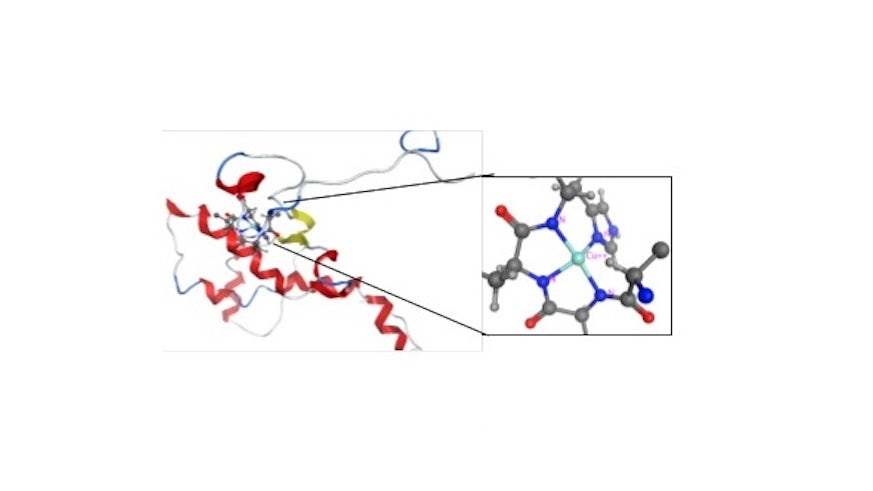New EPSRC Funding for Fundamental Alzheimer’s Research
13 Hydref 2015

Dr Jamie Platts has been awarded a new research grant for fundamental research into the important properties of peptides implicated in Alzheimer's disease. Aggregation of amyloid-b peptides in the presence of metals such as copper, zinc and iron causes formation of insoluble fibrils and plaques associated with Alzheimer’s. Other metals, notably those from the platinum group, are able to inhibit this association and hence may offer a novel strategy for diagnosis and/or treatment of Alzheimer’s.
The research will use state-of-the-art computer simulations to predict how metals interact with amyloid-b peptides and affect their structure and aggregation. Experimental data is hard to come by, so computer simulation is an attractive proposition.
Dr Platts said, “Computer models are used in all walks of modern life, and computer-aided molecular design plays a vital role in the discovery of new drugs and materials. In this research, new methods to simulate metal-amyloid interactions will be developed and tested, leading to new insight into these important bio-molecules.”
Dr Jamie Platts, who will lead the research at Cardiff, and Prof Robert Deeth of Edinburgh University, are experienced developers of methods for computer simulation of metals and biomolecules. Dr Platts said “this funding will give new insight into the crucial process of amyloid aggregation, and allow us to generate new hypotheses for design of drugs or diagnostic agents for Alzheimer’s disease“.